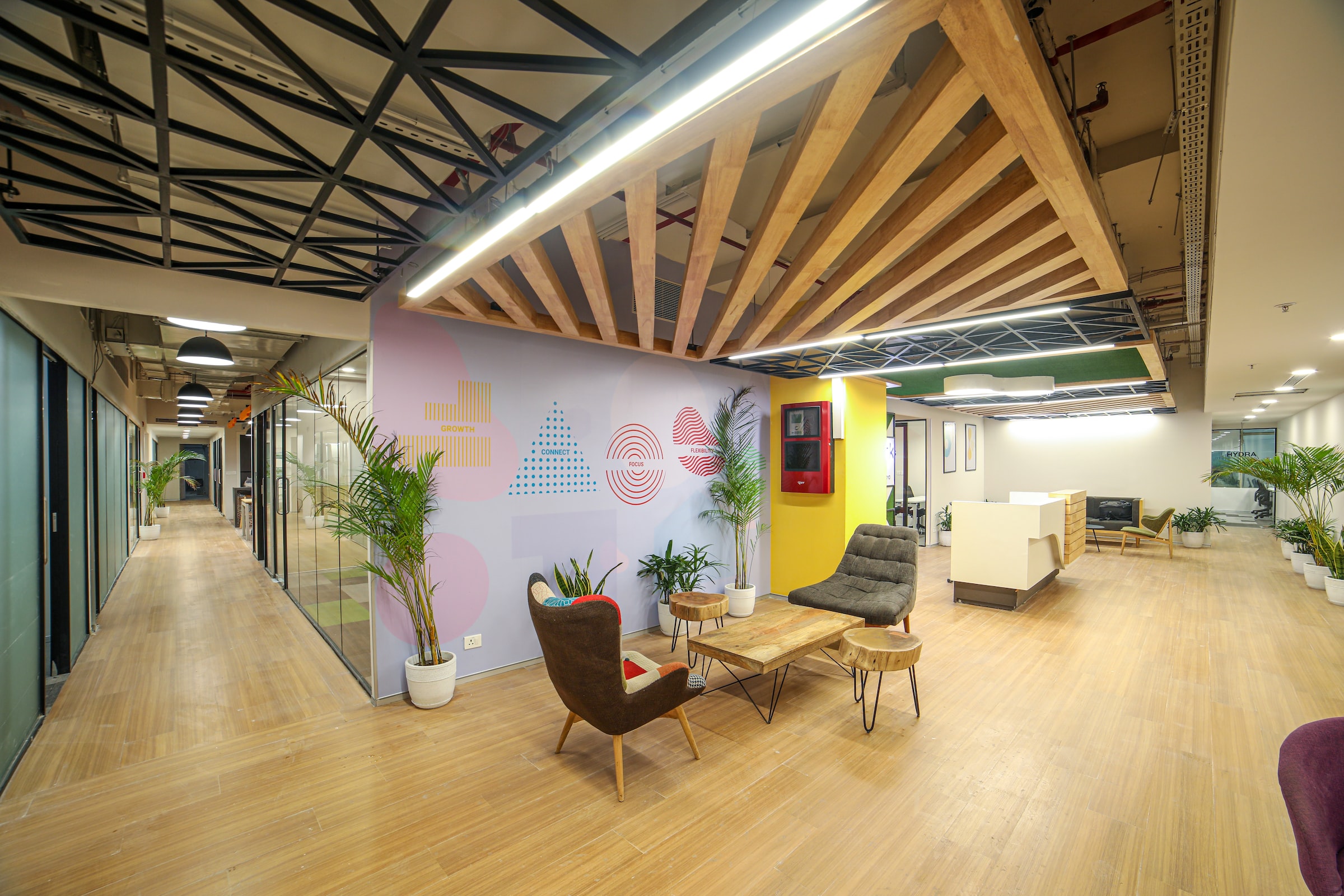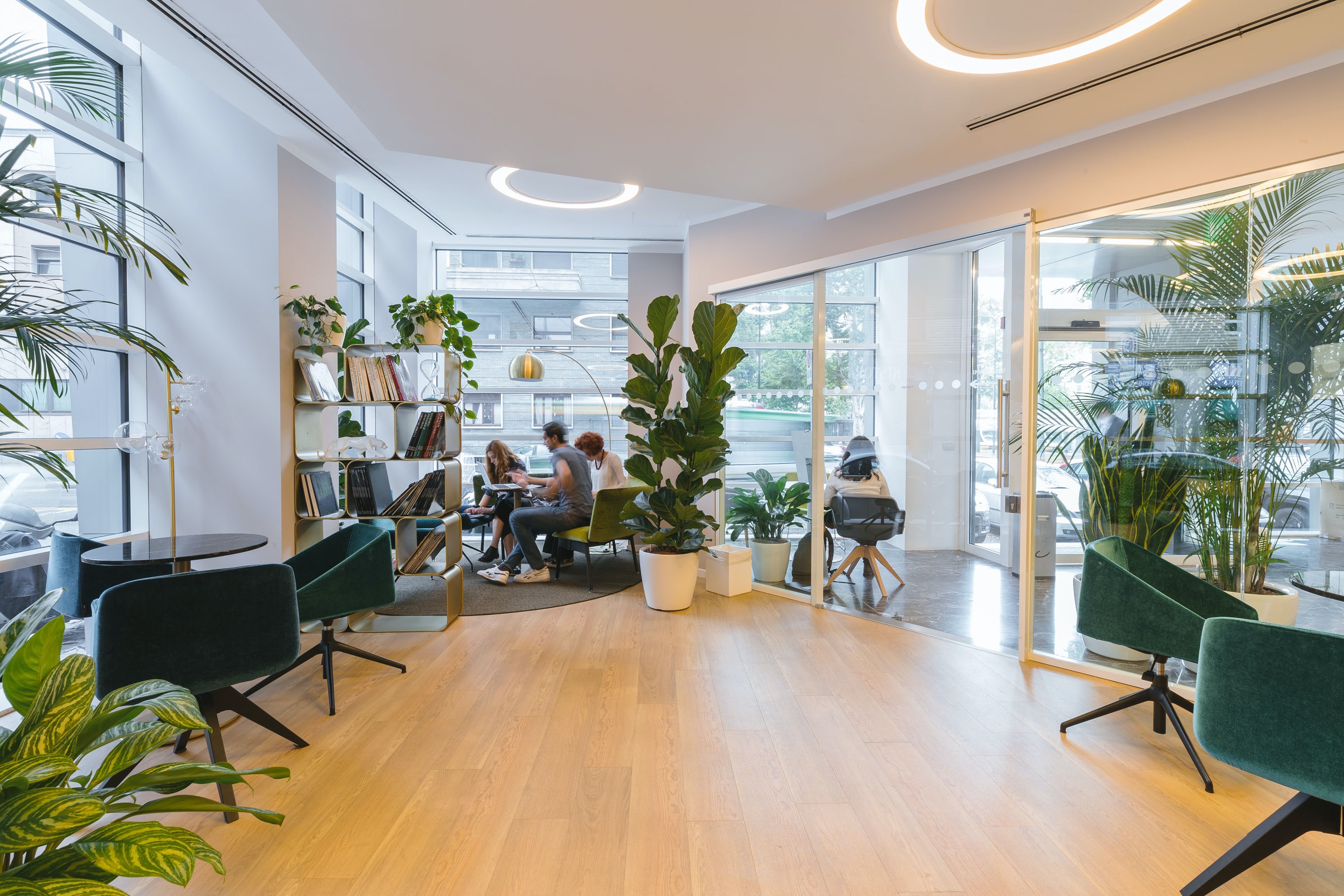Omar is the CEO of Affordances, a company that uses a holistic approach to work to solve experience issues for companies.
With a background in facility management, Omar progressed to project and construction management and worked for companies like Netflix, Dropbox, and Stripe.
Listen to the following clips for Omar’s expertise:
A HOLISTIC APPROACH FOR RETURN TO WORK
“Is the notion of bringing everyone back to the office, similar to a religious cult?” – Sabine Ehm
Due to Omar’s religious studies background, he is well-equipped to answer. He thinks that a uniform demand to return to work, without question, is foolish. Employees are voting with their feet with policies like these.
But it’s both sides of the equation. Employees don’t want to be mandated to return to work. But management must activate the office in order to justify their cost basis.
While Covid should have been an opportunity to rethink and re-strategize, that didn’t happen. Now it’s time to focus on synergy between different directives.
HOLISTIC EMPLOYEE RETENTION
“Hyper growth can be really, really great for companies and for investors, bottom lines, but hyper growth can take a [huge] human toll on people.” – Omar Ramirez
Omar notes that when you’re moving in hyper growth, you’re working 68 hours a week. So, in order to balance that, you need to have the systems in place in an overall employee experience ecosystem. And companies usually don’t do that early enough.
Omar discusses how Netflix nurtured trust to help balance hyper growth. Community was important at Dropbox, and therefore, everyone wanted to work there.
At Atlassian, they hold values as their number one. Culture will change as the company grows, but values will remain the same.
HOLISTIC RITUAL AT THE WORKPLACE
“There’s these religious words that are coming into the workplace and HR context now.” – Omar Ramirez
Ritual and gathering are two words that find themselves in the conversation of culture building and company philosophy. But Omar notes it is important to ask key questions when it comes to gathering, in other words coming to the office.
Why, when, how might this gathering take place? This extends further than just a meeting, but into why your company exists in the first place.
If you have good answers to those questions, your employees can act as ‘missionaries.’
HOLISTIC EMPLOYEE EXPERIENCE
“I do think that when you look [at how] work is developing, I think of it more as a holistic employee experience.” – Omar Ramirez
Where we work and how we work is just one part. It is the entirety of experiences an employee has from start to finish, starting with your employee interview, and it ends the day you leave, or the day you exit the company.
For Omar, Netflix set the bar. People say Netflix is a great place to be from. Because anyone that has worked at Netflix has moved on to bigger and better things. The company doesn’t hold you back, but celebrates your new chapter.
That kind of supportive community is a great version of a holistic employee experience.
A HOLISTIC APPROACH TO LEASES
“But for most companies, a five to seven-year lease, or a three to five-year lease, is not going to be realistic.”- Omar Ramirez
Flexibility, diversity, and organic collision is important for the workspace. The sense of collaborating from community working spaces has changed how we work.
We need to rethink how we build and design spaces. If we think of the office like a home, it’s constantly changing. How do we invest in a way that nurtures employee life and also doesn’t destroy the environment?
If companies thought in more of an “eat, pray, love” type of way, both businesses and employees would be better off.
CONCLUSION FOR A HOLISTIC APPROACH TO WORK
Omar thinks in design, which is so often focused on exact dimensions and uses. But he insists on thinking about the entirety of the environment.
He points to the Googleplex built in California. At the time, making everything ‘in house’ was a revelation. A way to improve productivity. But in the end, it hurt all the surrounding businesses. It gave no incentive for its inhabitants to even step outside.

 5’
5’




